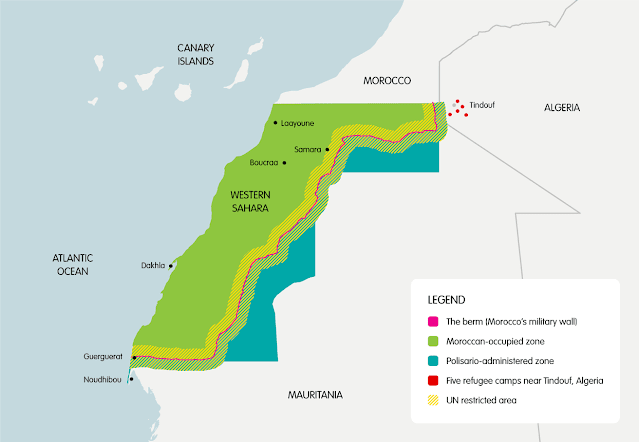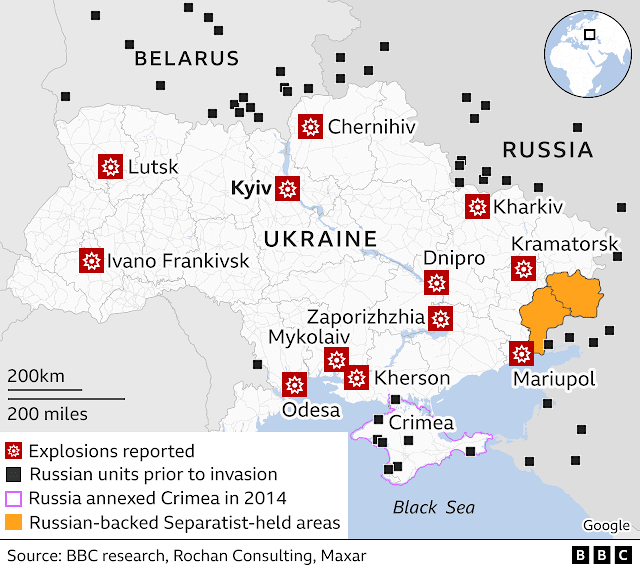Analysis: Battle in the Maghreb: Morocco, Algeria and the question of Western Sahara
Africa has historically been a web of conflicts in the post-colonial period. These issues often revolve around artificially constructed borders, ethno-religious tensions and hasty European withdrawals. North Africa has been viewed (perhaps somewhat disproportionally), as a more stable area of the continent. This image extends particularly to the region known as the Maghreb, the north-western limit of the African continent and of the Arab world. It includes vast, historic nations, such as Algeria, Morocco and Mauritania. During the Arab spring, these nations largely weathered the storm, particularly compared to the Middle East and other fellow North African nations, such as Libya and Egypt. Yet in 2021, recent developments have threatened to thaw out a frozen conflict left in limbo since the 1990s. Tensions between the two largest powers in the region (Morocco and Algeria), have grown over a stretch of inhospitable land with a population of around 500,000 inhabitants. The name of this land, is Western Sahara.
Historical Context
The issue of Western Sahara emerged following the withdrawal of Spanish forces from their former colony in 1975. Both Morocco to the north and Mauritania in the south viewed the region as rightly belonging to them, having historical ties to the area. Conversely, a large number of the largely migratory native population held a wish for self-determination, viewing themselves as distinct from Morocco or Mauritania. This wish for self-determination materialised in the Polisario front, formed by the Sahrawi people. This group had support from Algeria, who bordered Western Sahara and was suspicious of Moroccan expansionism, with Rabat also laying claim to small chunks of Algeria. The UN concluded that though Morocco and Mauritania had both historically had a presence in the Western Sahara, it was not sufficient to undermine the Sahrawi peoples wish for self determination. Unfortunately, negotiations broke down, resulting in Morocco and Mauritania invading Western Sahara, which was resisted by the Polisario movement. In the following conflict, Mauritania was forced to retreat following military confrontation with Polisario, officially abandoning its claim to the region. Yet Morocco held firm, pushing back the Polisario movement until a ceasefire was agreed in 1991.
Frozen conflict
The conflict remained essentially paused across the following decades. The Polisario movement found backing in Algeria, which possessed the most developed military in the region, essentially ensuring its survival. Meanwhile, the territory Morocco had advanced in to, was heavily mined and came further under Rabat's control, entrenching the conflict. Both sides committed to attempting to organise a referendum on the regions status, but disputes over who had a right to vote continued until 2020.
Geopolitical Dimensions and the Resumption of Conflict
The ceasefire between the two broke down late in 2020 when Morocco attempted to open a road to Mauritania, viewed by Polisario as a breach of the cease-fire agreement. Since then, there has been sporadic conflict, with rocket attacks, artillery bombardments and small arms fire, leading to dozens of casualties. The resumption of conflict may have been directly attributed to a road, but it has geopolitical reasonings and implications beyond the Western Sahara. Chief among these reasons is the rivalry between Algeria and Morocco. Algeria has several reasons to fear Moroccan domination of Western Sahara. Firstly, Moroccan occupation would 'hem in' Algeria, preventing access to the Atlantic Ocean, which would be a major economic and geopolitical disadvantage. Secondly, Morocco internationally appears to be on the rise, with fears in Algiers that an emboldened Morocco may press its claim not only to the Western Sahara, but to the point of regional hegemony in the Maghreb, something Algiers has traditionally aspired to. This development comes with the prospect of falling oil revenues, (the backbone of the Algerian economy) and the recognition of Moroccan sovereignty over Western Sahara by the United States. This recognition was gifted in response to Morocco's establishment of diplomatic relations with Israel. Now, Morocco finds itself with American backing, an essential economic connection to sub-Saharan Africa and an ever increasing military budget. Algeria meanwhile, finds itself hemmed in, economically vulnerable and with a powerful neighbour on its border. Though by no means is Algeria implicated in the resumption of conflict, perhaps Algerian leaders view the Western Sahara as key means by which to push back against the growth of its western rival.
(Image Source: https://ecfr.eu/publication/free-to-choose-a-new-plan-for-peace-in-western-sahara/)



Comments
Post a Comment